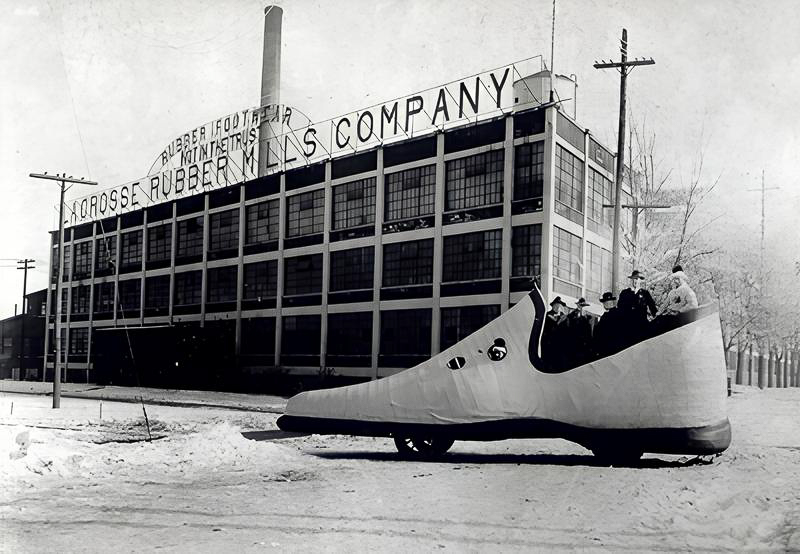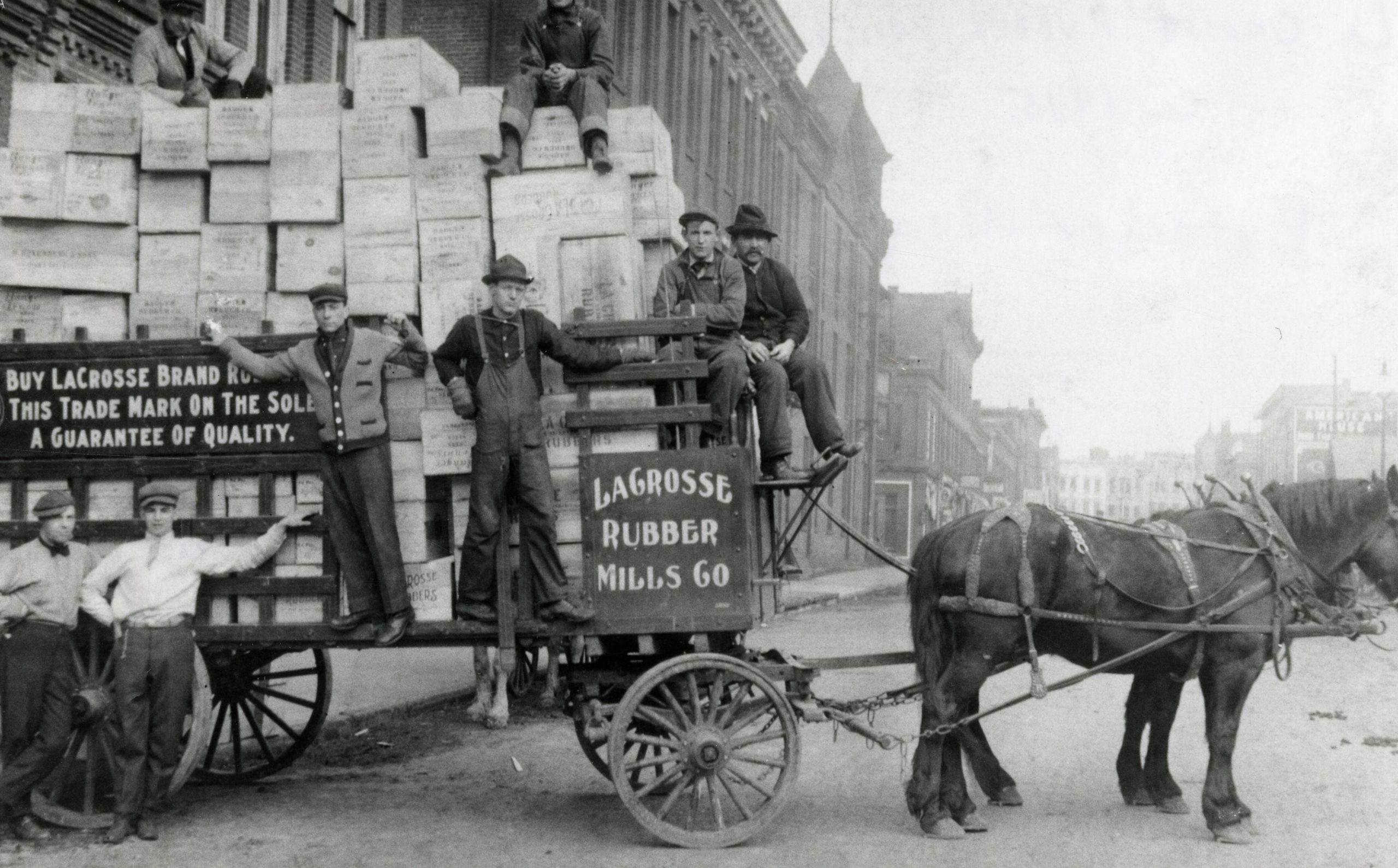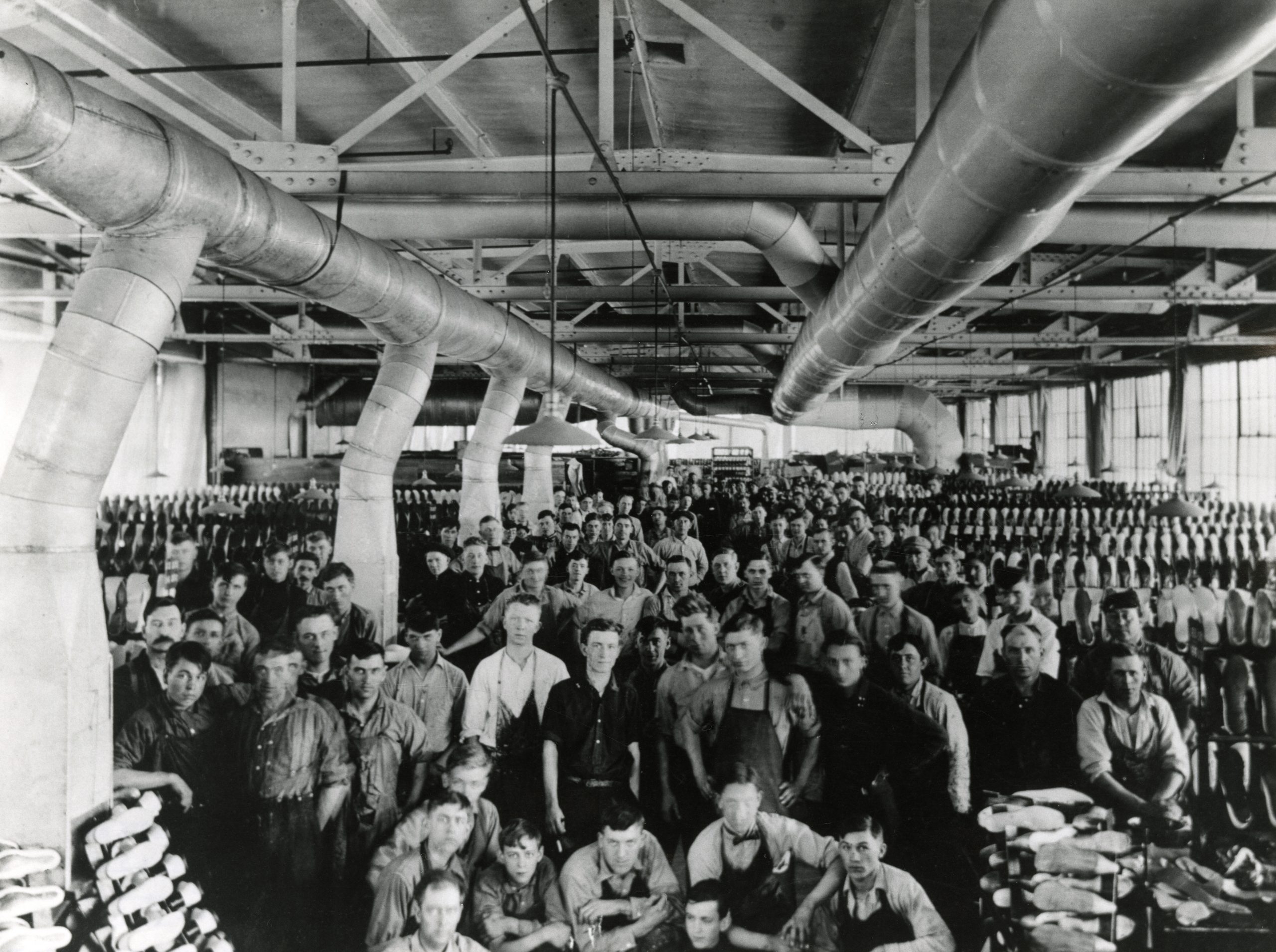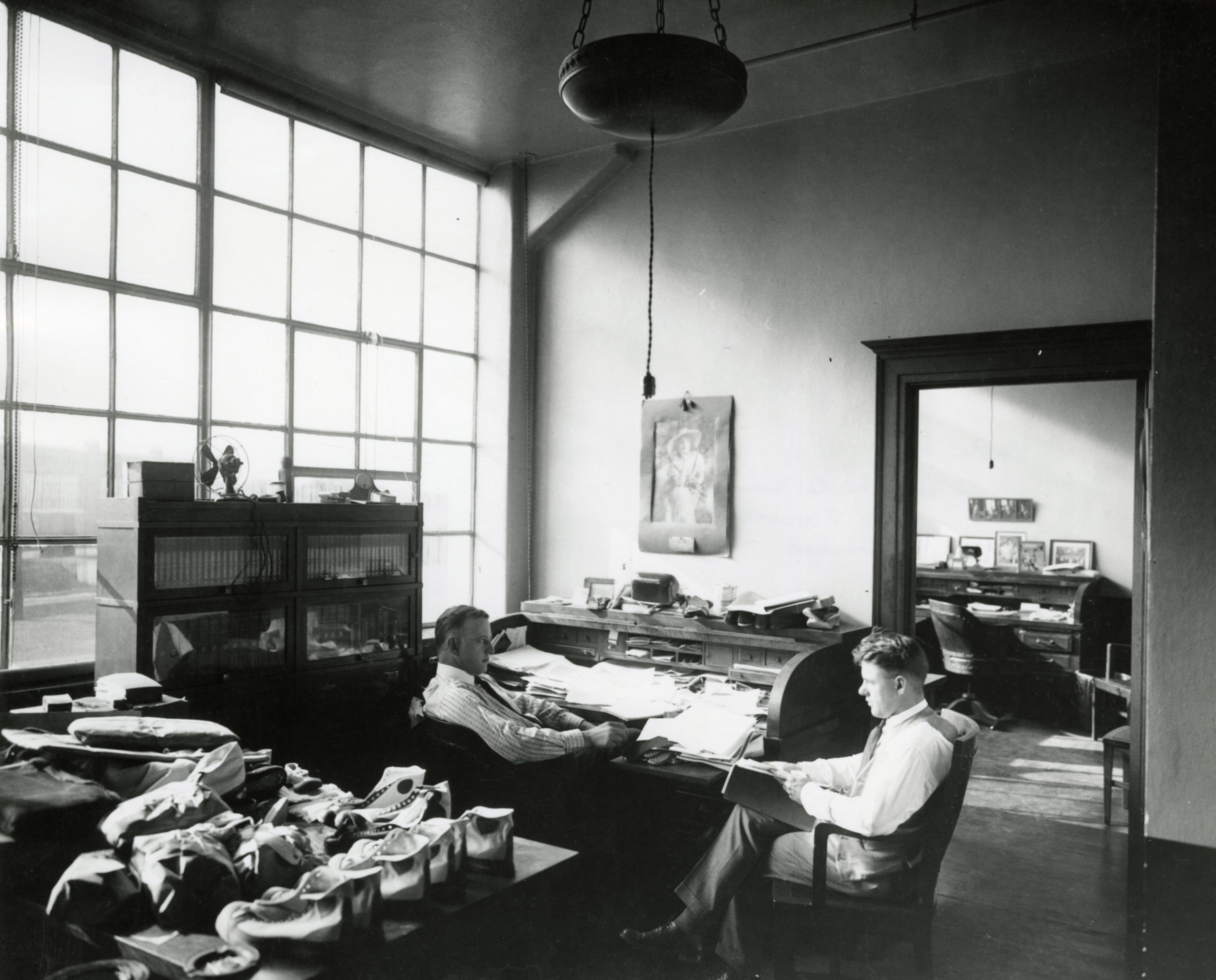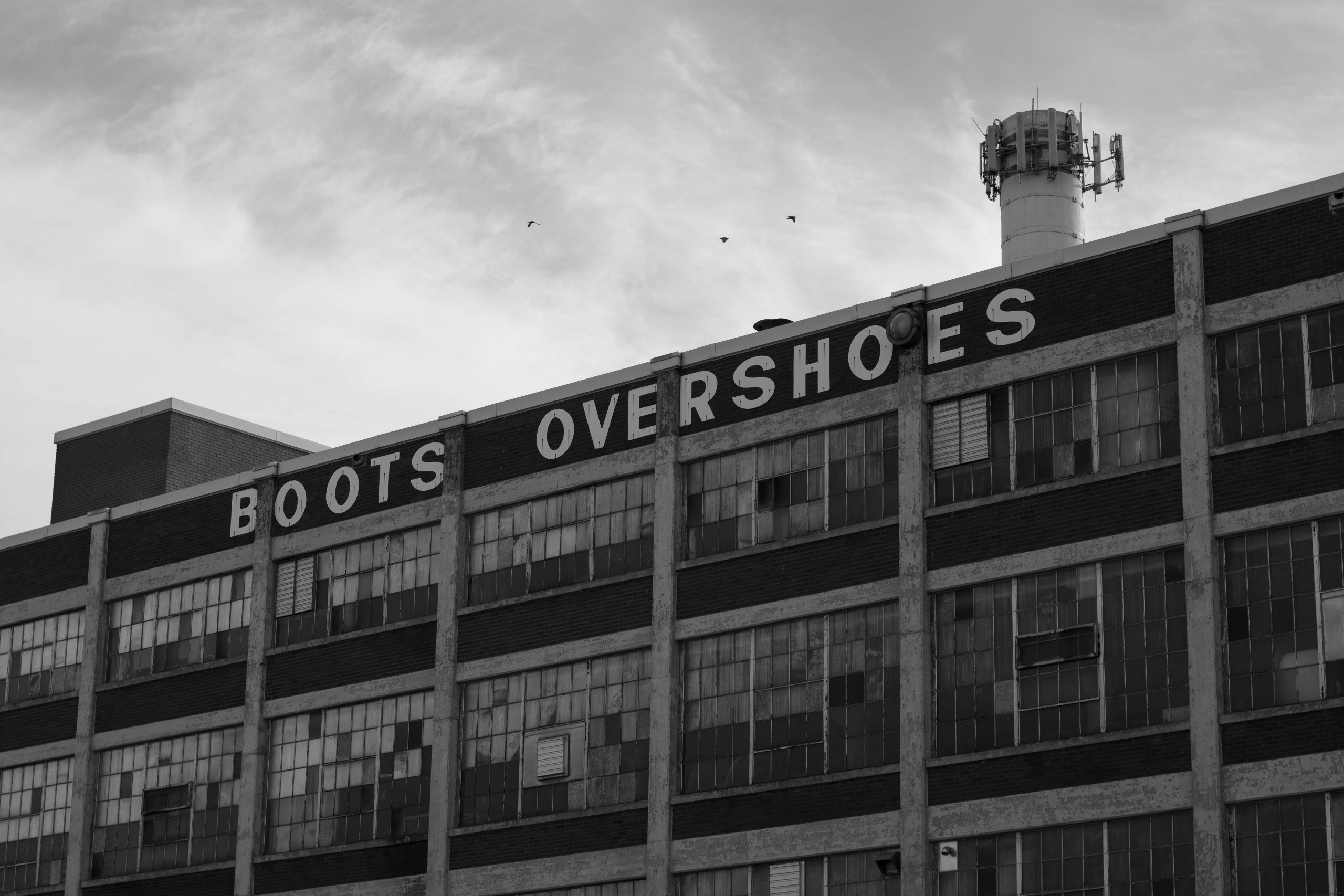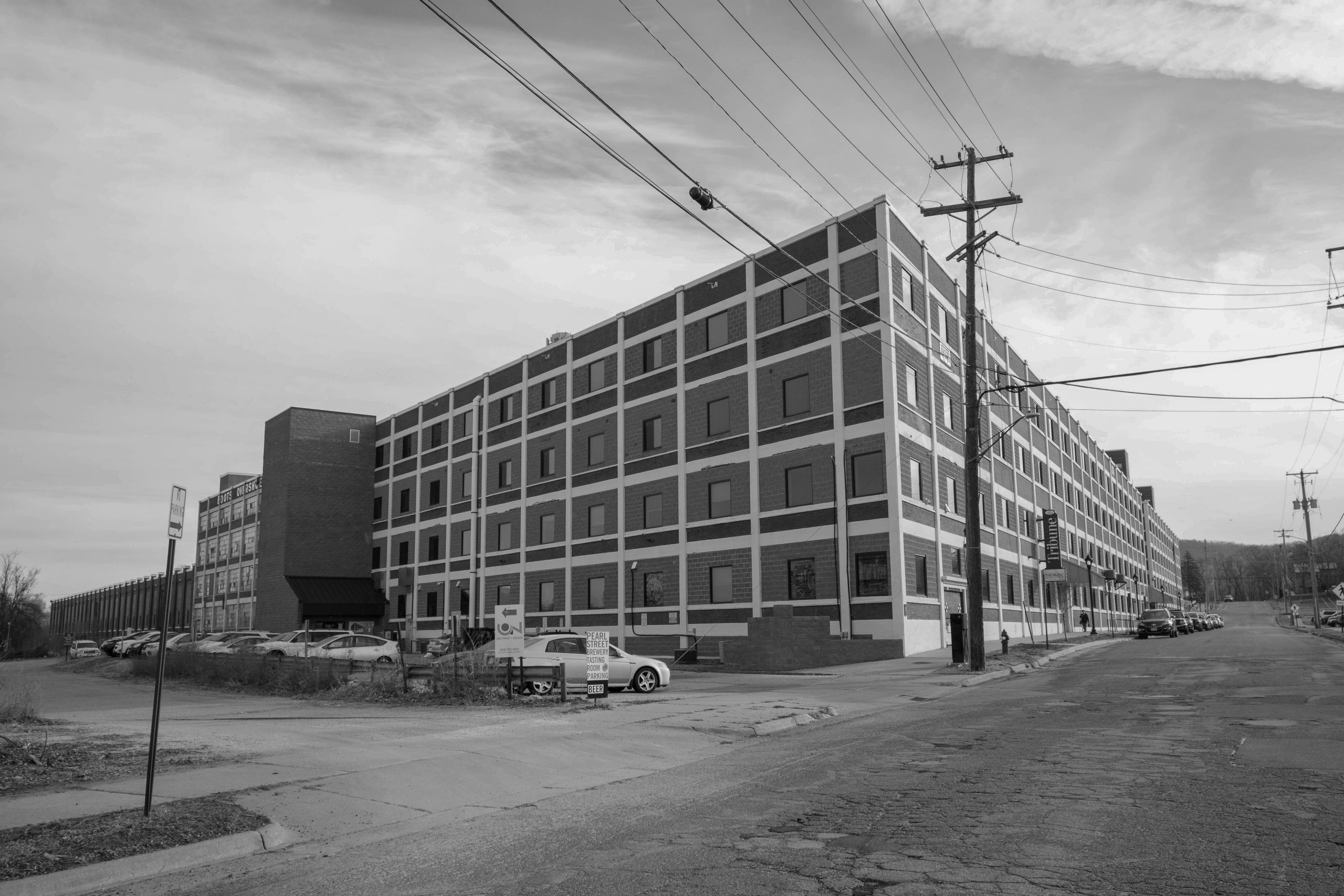Herman Tietz
Herman Teitz was hired to work for the La Crosse Rubber Mills Company and went two weeks without pay. When he was compensated, he was paid per piece. Herman’s brother also worked for the company in the office and the pair were frequently accused of favoritism.
This interview comes from the UWL Oral History Program at Special Collections Murphy Library.
Transcript
Location: 1401 St. Andrew St.
Howard Fredricks (interviewer): Was the Rubber Mills there in 1903?
Herman Tietz: It was just an old shack—just a red shack. The first thing they had—they started with, uh, raincoats! And then they, uh, started making shoes.
Fredricks: And was Funk in charge at that time? In the beginning?
Tietz: Yeah, I believe Funk—I think Old Funk was the first one.
Fredricks: And that was located where it is now?
Tietz: Right now, yep. A one-story shack. And they made shoes in there.
Fredricks: Rubber shoes?
Tietz: Yep. I worked there for a while. I worked there in 1907, I believe—1908 I worked there.
Fredricks: What did you do?
Tietz: Made shoes. We had to work two weeks for nothing. They’re called strikers. If you went in and started making shoes, why, you worked with another fellow and you learned how to do it, you know. You worked for two weeks and you didn’t get paid until you learned how. Then they would give you twenty-four pairs of tennis shoes to make or twelve pair four-buckle overshoes. You would have to lay your lining and put cement on them the night before so it would be dry the next morning and have that laid out and then your insoles and juniors and all the different things. And you had to get your lathes and you put your lining over and get your insole in and then put it over and then put your right sole on and your counter in the back and then your vamp and your uppers and then your foxing and then your, uh, outsole. You had to put all that on and roll it down and stitch it.
Fredricks: You would make the shoe from scratch then?
Tietz: From scratch, yes. Yeah.
Fredricks: And you were supposed to make how many?
Tietz: Well, uh, when you started out, well, you just made about twelve pair. Oh, I made as high as thirty pair of overshoes—
Fredricks: In one day?
Tietz: In one day. And if you made eighteen dollars a week, boy I’ll tell ya what, that was a lot. The guys used to get sore, you know, when you made that much money.
Fredricks: Who would make…?
Tietz: The other guys who didn’t make that many shoes, you know—
Fredricks: Oh, you were paid by the piece?
Tietz: Sure, every piece.
Fredricks: How much?
Tietz: Well, I forget now just exactly how much we got paid by the piece but I remember that, uh, one day—one week I got eighteen dollars and the other guys were getting thirteen and fifteen dollars and, boy, they didn’t like that at all, you know. My brother, he was working in the office there, and he was making out the list for making shoes and then they always used to say that he was favoring me, you know. And for that there, he always used to make it tougher for me because he didn’t want that said. He would give me the big sizes and the real small sizes—the real small sizes are just as hard to make as the big sizes. The ones in between, why, you could handle them faster.
Fredricks: Was each finished product inspected?
Tietz: Yes, after it was cured, you know, they’d take them and cure them. And you had to—
Fredricks: What do you mean, ‘cured’?
Tietz: Cured. Put through the, uh, heat!
Fredricks: You make—you make the shoe…?
Tietz: Yeah, and they put ‘em—they’d put them into the ov—like, an oven, you know, and cure ‘em! Uh, in the morning, they’d open—open up and that stuff would come in and, boy, you’d get drunk from that—uh, you know, a lot of—you’d get sick! You’d definitely get sick and definitely get drunk from breathing that. It wasn’t ventilated, you know. Now they got it all—they got it different. It was tough. They had it all—it was just blue in there! And if it was cold, you know, you couldn’t open a window or anything of that kind because if you open a window, the shoes—it would get frost, you know, they would dry out too fast and it wouldn’t stick.

